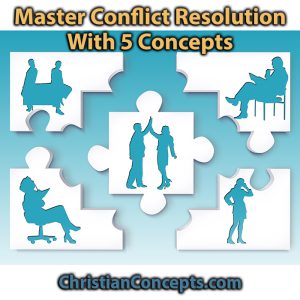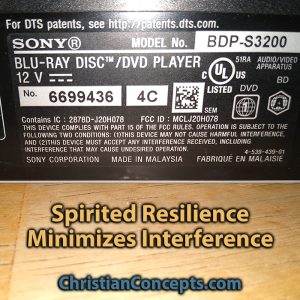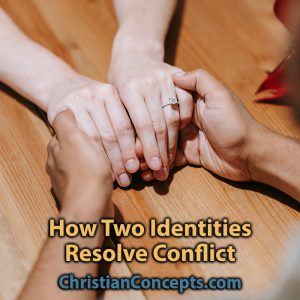8 Foundations for a Fruitful Marriage that will Make it Last a Lifetime
What keeps a marriage alive when the honeymoon fades? The answer isn’t found in romance alone, but in the Spirit who gives life.
Marriage is one of God’s most beautiful gifts, but it is also one of the most demanding journeys we can undertake. It is not simply about two people living under the same roof—it is about two souls learning to walk together in love, truth, and grace. To thrive in marriage, we must understand that its strength does not come from human effort alone, but from the life-giving Spirit of Jesus Christ. Let’s explore several truths that anchor a healthy, Christ-centered marriage.
#1 A Healthy Marriage Begins with Healthy Individuals
A marriage cannot be stronger than the two individuals in it. If a spouse is spiritually, emotionally, and physically depleted, the relationship itself will suffer. A healthy marriage requires two people who are pursuing wholeness in Christ. This doesn’t mean perfection—it means each person is committed to growth, healing, and maturity. When both husband and wife are grounded in Christ, they bring stability and resilience into their union.
What steps are you taking to pursue wholeness in Christ personally? How might that strengthen your marriage?
#2 Love Requires a Constant Input of Spiritual Life
Human love runs dry quickly. We may start with passion and good intentions, but without a continual source of renewal, our capacity to love fades. Just as a lamp needs oil to keep burning, our hearts need the constant input of spiritual life. Prayer, Scripture, worship, and fellowship are not optional extras—they are the lifeblood that enables us to love beyond our natural limits. Without this steady inflow, even the strongest marriage will eventually strain under the weight of unmet expectations.
Where do you turn when your love feels depleted? If you turn to Christ, but still feel drained, consider asking God to make your heart more “sponge-like” so you can absorb His love.
#3 Jesus Alone Is the Life-Giving Spirit
It is tempting to look to our spouse as the source of joy, peace, or fulfillment. But no human being can bear that weight. Your spouse is not your savior. Only Jesus is the life-giving Spirit who can satisfy the deepest needs of your soul. When we expect our spouse to provide what only Christ can give, we set them up for failure and ourselves for disappointment. A marriage flourishes when both partners draw life from Jesus first, and then share that overflow with one another.
Are there ways you’ve expected your spouse to meet needs only Jesus can fulfill? Try redirecting those expectations to Him.
#4 The Vine and the Branches
Jesus said, “I am the vine; you are the branches” (John 15:5). This image is crucial for marriage. Just as branches cannot survive apart from the vine, we cannot thrive apart from Christ. Life must flow from Him into us. When both husband and wife remain connected to the vine, their marriage becomes a living testimony of God’s sustaining power. The fruit of love, patience, kindness, and forgiveness grows naturally when the branches stay rooted in the vine.
What practices help you stay connected to the Vine?
#5 Apart from Jesus, We Can Do Nothing
This truth humbles us. No amount of communication techniques, conflict resolution strategies, or romantic gestures can substitute for the presence of Christ. Apart from Him, we can accomplish nothing of eternal value. But with Him, even ordinary moments—sharing a meal, raising children, facing trials—become infused with grace and meaning. A marriage anchored in Jesus is not merely functional; it becomes fruitful.
Which areas of your marriage feel most dependent on your own effort? How can you surrender them to Christ?
#6 Unity Without Loss of Individuality
When God joins a man and woman together, He does not erase their individuality. Instead, He creates a new unity that allows them to function as a team. Each spouse retains their unique gifts, perspectives, and personality, but together they accomplish what neither could achieve alone. Marriage is not about losing yourself—it is about finding a deeper expression of yourself in partnership with the one God has given you.
Though one may be overpowered,
two can defend themselves.
A cord of three strands is not quickly broken.
Ecclesiastes 4:12
How do your unique gifts complement your spouse’s? In what ways can you celebrate individuality without weakening unity?
#7 Marriage Is a Marathon, Not a Sprint
Too many couples treat marriage like a short race, expecting instant results and quick rewards. But marriage is a marathon just like individual life is. It requires endurance, pacing, and long-term vision. There will be seasons of joy and seasons of struggle, but the goal is not to finish quickly—it is to finish faithfully. Couples who pace themselves for a lifetime learn to savor the journey, not just the milestones.
Pacing means accepting your spouse at his or her place in spiritual maturity. In marriage, it’s possible to be at different places in the race, but yet still be one. How can you pace yourself in marriage this week instead of rushing results?
#8 Conflict as a Tool for Growth
Conflict is not a sign of failure; it is a sign of humanity. God designed us to mature over time, and conflict is one of His tools for shaping us. Through disagreements, we learn who we are and who we are not, what we are responsible for and what we are not. Conflict, when handled with humility and grace, deepens understanding and strengthens trust. It reminds us that marriage is not about avoiding tension, but about growing through it.
How do you typically respond to conflict? What might it look like to approach disagreements as opportunities for growth rather than threats?
See a different post I wrote for more help resolving conflict.
Conclusion
Marriage is a sacred calling, but it is also a daily practice of dependence on Christ. Two healthy individuals, rooted in the vine, drawing life from Jesus, can build a marriage that endures the marathon, embraces conflict, and flourishes in unity. The secret is simple yet profound: apart from Him, we can do nothing—but with Him, we can do everything He has called us to do together.
Fruitfulness in marriage is not measured by ease, but by the lasting witness of Christ’s life flowing through you. Commit yourself to spiritual growth and you will thrive in all that you do.
Image created by Matt using Copilot.


















